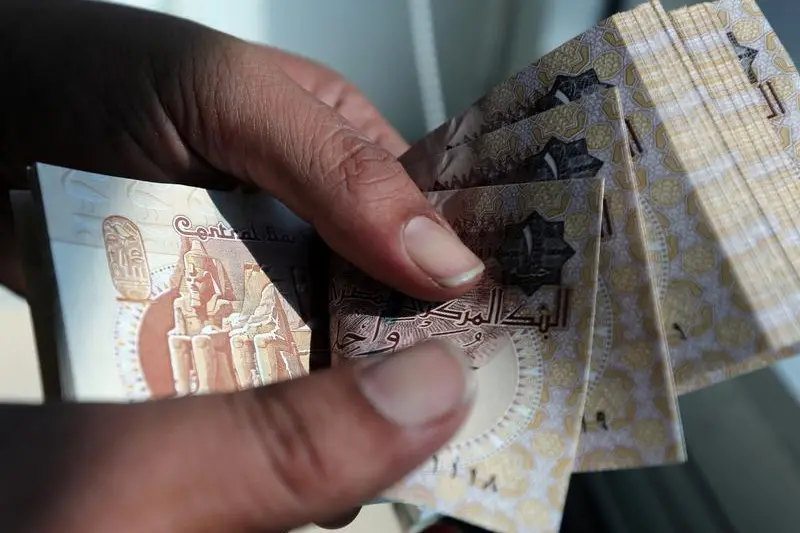PHOTO
CAIRO- Egypt is losing ground as a top haven for emerging market debt investors, and interest rate cuts could make its short-term treasuries less attractive to foreign buyers in coming months, a report by CI Capital Asset Management said on Monday.
Egypt last year emerged as one of the world's hottest destinations for portfolio investors after its short-term treasury yields touched 22 percent as the central bank hiked interest rates to curb soaring inflation.
The high-yielding debt brought hordes of foreign buyers and badly needed hard currency to Egypt, an import-dependent country that has relied on dollar inflows to fund its current account deficit in the absence of large foreign direct investment.
By December of last year foreign holdings of treasury bills surged to nearly $20 billion, up from just over $60 million in mid-2016, before Egypt floated its currency and agreed a $12 billion IMF loan programme that has helped lure back investors that fled after its 2011 uprising.
But short-term treasury yields have declined since the middle of last year on the back of lower inflation, which prompted the central bank to cut rates last month for the first time since the float, by 100 basis points.
Foreign buying appears to be tapering off as yields have come down, said Noaman Khalid, an economist with CI Capital Asset Management, one of Egypt's largest asset managers.
"We've seen that we've reached the limit of $19.8 to $20 billion as a cumulative balance of foreign holdings of debt...the monthly increases are now starting to be minimal," said Khalid.
Economic conditions in emerging market competitors Nigeria, Argentina, Turkey and Ukraine meanwhile are expected to push their respective treasury yields several percentage points above Egypt's over the next year, the CI Capital report said.
To keep critical hard currency flowing as interest rates fall, Egypt will have to exempt foreigners from its current tax of 20 percent on treasury earnings -- as some competitors already do -- or have the central bank absorb domestic liquidity to keep treasury yields high, the report added.
Still, some investors and economists see Egypt as a strong buy.
"Yes the attraction of Egyptian debt has reduced, but only from 'extremely' to 'very' attractive," said Charles Robertson, global chief economist at Renaissance Capital.
"We think inflation still has to fall from 14 percent to 12 percent in the next few months, the currency is 15 percent undervalued relative it owns history and is the third cheapest in emerging markets. It remains our top pick," he said.
The central bank is set to hold its next monetary policy meeting on March 29.
Central bank foreign reserves rose to an all-time high of $42.524 billion at the end of February, boosted by a recent $4 billion Eurobond sale. ($1 = 17.5800 Egyptian pounds)
(Reporting by Eric Knecht Additional reporting by Nadine Awadalla and Arwa Gaballa Editing by Hugh Lawson) ((eric.knecht@thomsonreuters.com; +20 2 2394 8102; Reuters Messaging: eric.knecht.thomsonreuters.com@reuters.net))












